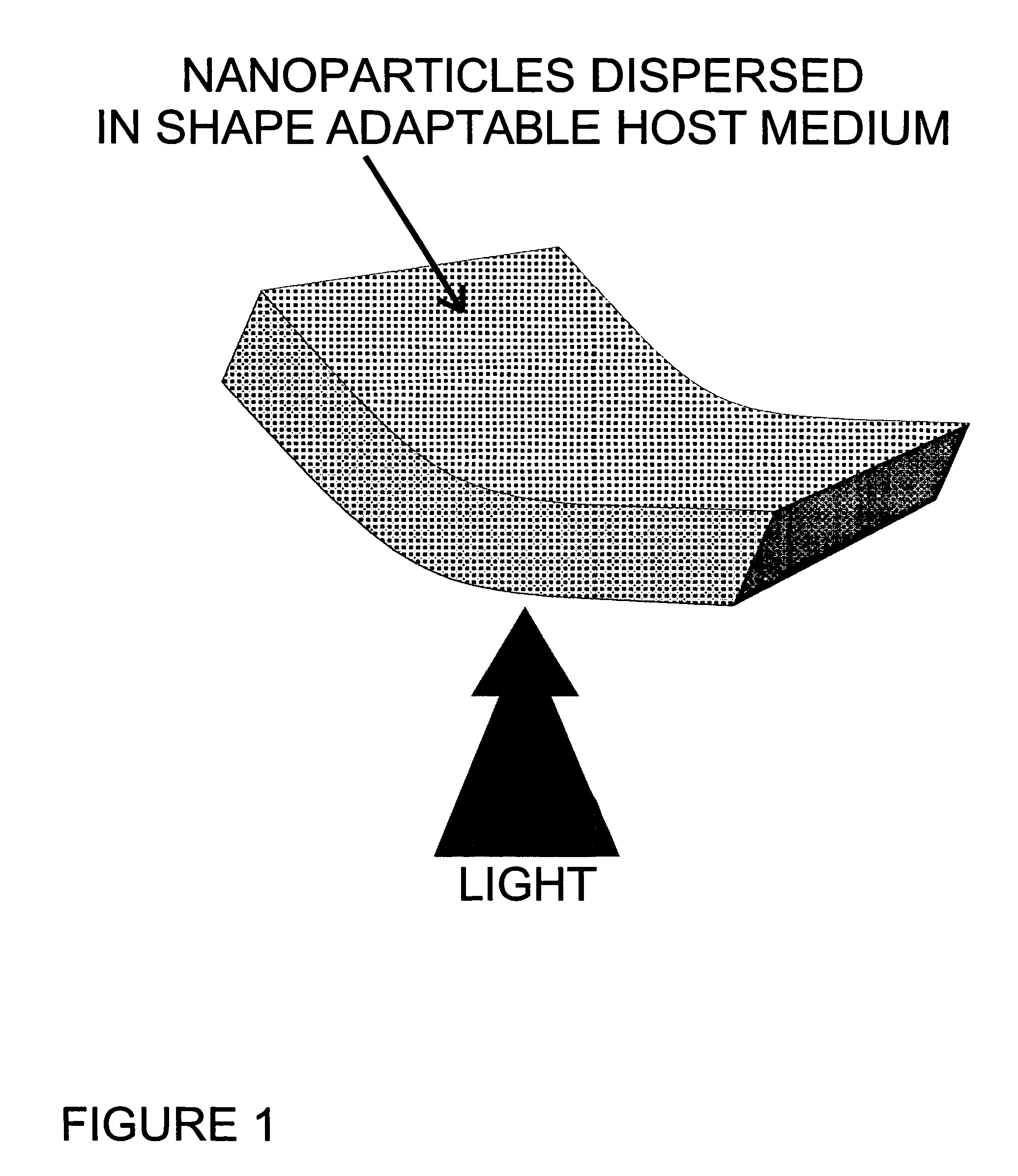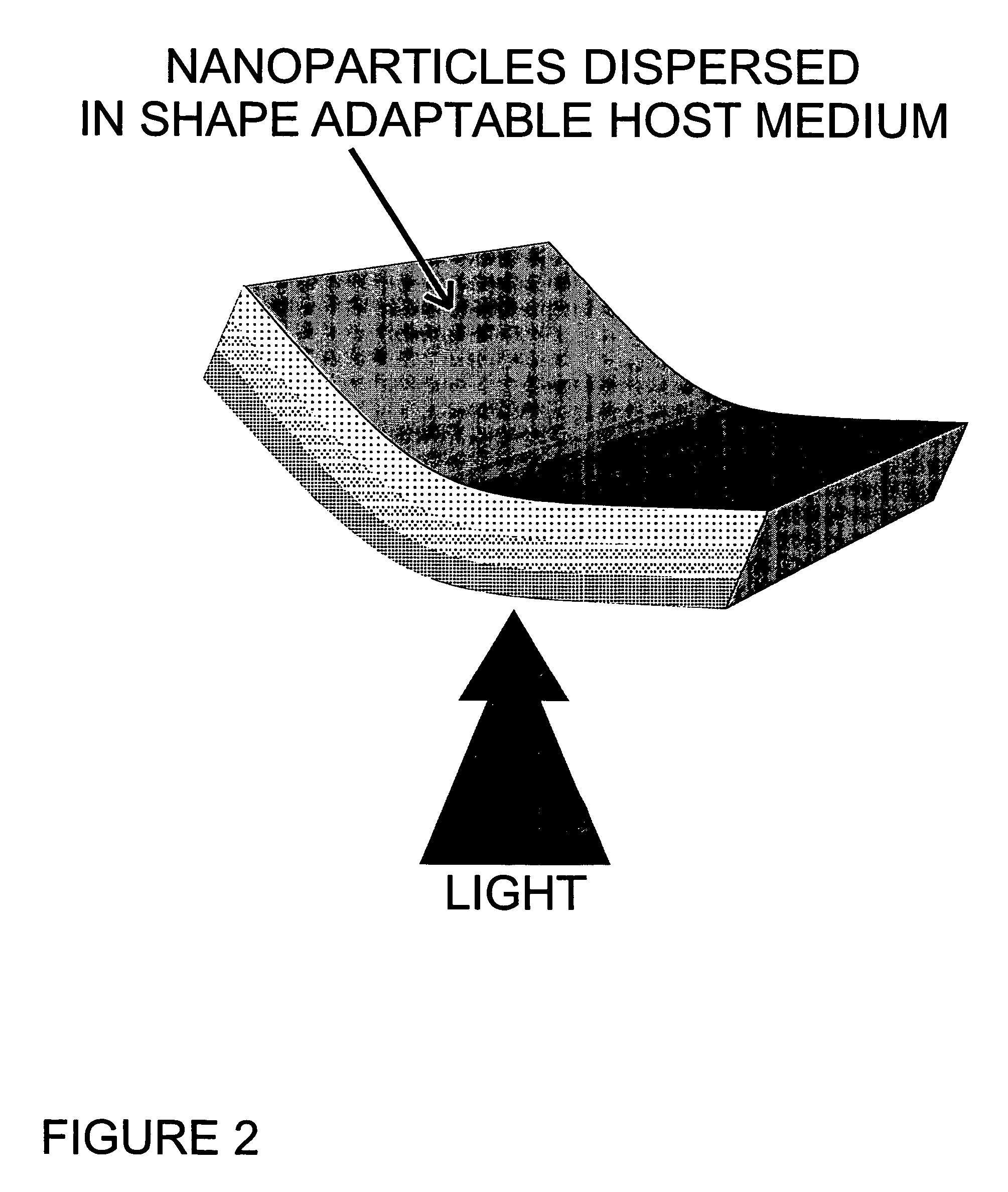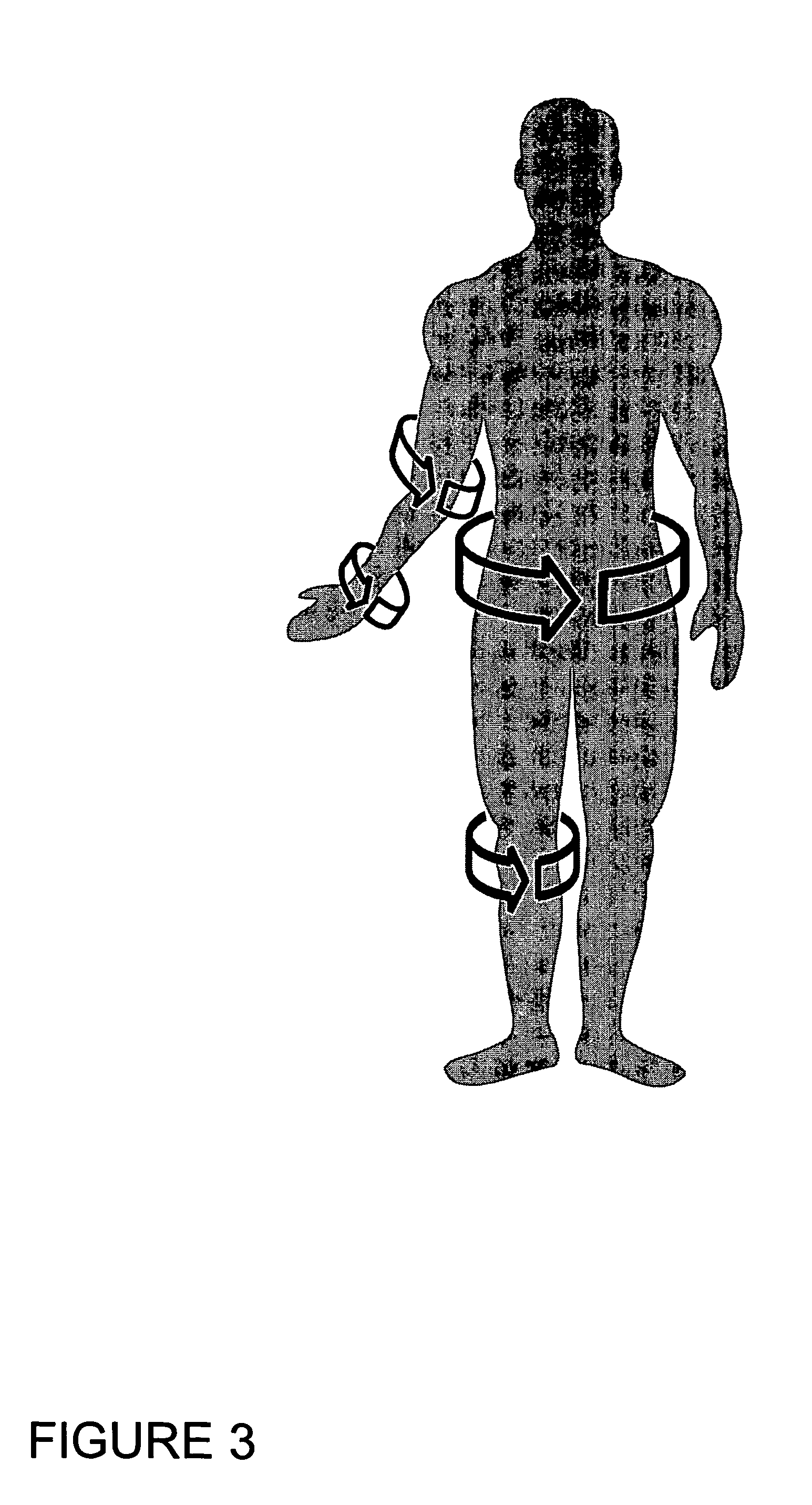Phototherapeutic treatment method using a passive host medium containing nanoparticles
a phototherapeutic treatment and host medium technology, applied in the field of phototherapeutic treatment methods using passive host mediums containing nanoparticles, can solve the problems of arrays not providing conformal and adaptable distributed light sources, and achieve the effect of facilitating light delivery and broader response rang
- Summary
- Abstract
- Description
- Claims
- Application Information
AI Technical Summary
Benefits of technology
Problems solved by technology
Method used
Image
Examples
Embodiment Construction
[0023]The present method involves incorporating nanocrystals into a passive host medium, and when irradiated by an excitation source, the said nanocrystals responsively emit radiation in the desired wavelength region thereby acting as a light source within the said host medium. The term passive host medium means a medium which can emit radiation responsive to some form of excitation energy, but which does not require any electronics or power associated with it.
[0024]Also, as used herein, the term “nanocrystals” means nanoparticles, which can emit radiation responsive to some form of excitation energy. Thus it will be understood that the term “nanocrystals” as used herein is not restricted to crystalline structures, although crystalline nanoparticles such as crystalline semiconductor nanocrystals are a preferred embodiment. However, noncrystalline semiconductor nanoparticles and other inorganic or organic nanoparticles may also be used.
[0025]Semiconductor nanocrystals are described i...
PUM
 Login to View More
Login to View More Abstract
Description
Claims
Application Information
 Login to View More
Login to View More - R&D
- Intellectual Property
- Life Sciences
- Materials
- Tech Scout
- Unparalleled Data Quality
- Higher Quality Content
- 60% Fewer Hallucinations
Browse by: Latest US Patents, China's latest patents, Technical Efficacy Thesaurus, Application Domain, Technology Topic, Popular Technical Reports.
© 2025 PatSnap. All rights reserved.Legal|Privacy policy|Modern Slavery Act Transparency Statement|Sitemap|About US| Contact US: help@patsnap.com



